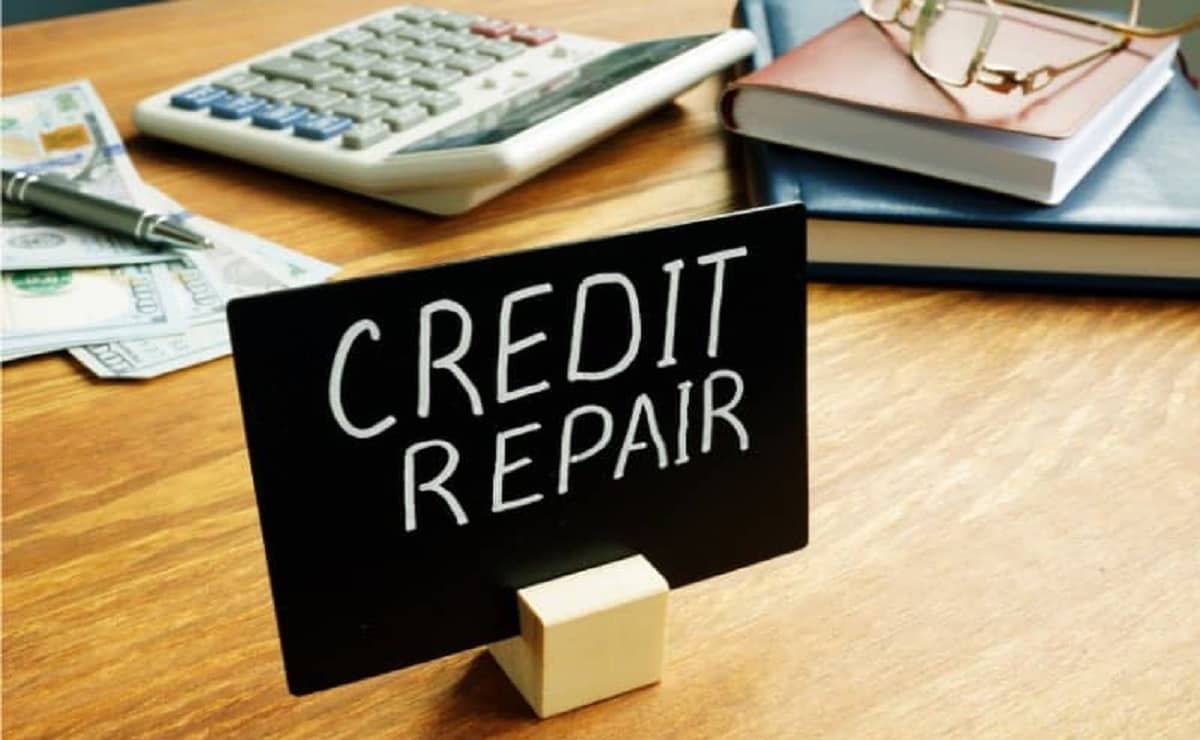

Finance
How To Become A Credit Repair Agent In Texas
Published: October 23, 2023
Learn how to become a credit repair agent in Texas and gain the skills and knowledge needed to succeed in the world of finance. Start your journey today!
(Many of the links in this article redirect to a specific reviewed product. Your purchase of these products through affiliate links helps to generate commission for LiveWell, at no extra cost. Learn more)
Table of Contents
- Introduction
- Licensing Requirements
- Education and Training
- Choosing a Credit Repair Organization
- Obtaining a Surety Bond
- Registering with the Secretary of State
- Creating a Business Plan
- Marketing and Advertising
- Building a Client Base
- Handling Disputes and Communicating with Credit Bureaus
- Staying Up-to-Date on Credit Repair Laws and Regulations
- Maintaining a Good Reputation in the Industry
- Conclusion
Introduction
Welcome to the world of credit repair! If you have a passion for helping others, a keen eye for details, and a strong understanding of the financial industry, becoming a credit repair agent in Texas can be a rewarding career path. In today’s society, where credit plays a crucial role, many individuals find themselves in need of assistance to repair and improve their credit scores.
As a credit repair agent, you will have the opportunity to guide clients through the process of resolving inaccuracies on their credit reports, disputing negative items, and implementing strategies to build positive credit history. Not only will you be able to make a positive impact on individuals’ lives, but you can also enjoy the potential for financial success and personal growth.
However, before you embark on this journey, it is important to familiarize yourself with the licensing requirements and procedures in Texas. Understanding the steps involved and ensuring compliance with the relevant regulations is essential to establish yourself as a reputable and trustworthy credit repair agent.
In this article, we will walk you through the key steps and considerations necessary to become a credit repair agent in Texas. From obtaining the necessary licensing to building a client base, we will provide you with valuable insights and guidance to help you succeed in this dynamic field.
So let’s dive in and explore how you can turn your passion for helping others into a fulfilling career as a credit repair agent in the Lone Star State!
Licensing Requirements
Before you can begin operating as a credit repair agent in Texas, it is important to understand the licensing requirements set forth by the state. While credit repair is not a regulated industry at the federal level, Texas has specific guidelines that must be followed to ensure compliance and protect consumers.
In Texas, credit repair agencies are required to be licensed and bonded under the Texas Finance Code, Chapter 393. The Texas Secretary of State’s office oversees the licensing process and ensures that credit repair agents are operating ethically and within the legal boundaries.
To obtain a license, you must meet certain qualifications, including:
- Residency: You must be a resident of Texas or have a designated office location within the state.
- Age: You must be at least 18 years old to apply for a credit repair agent license.
- Background Check: You will be required to undergo a criminal background check to ensure that you have no disqualifying convictions.
In addition to these qualifications, you will need to complete an application and pay the necessary fees to initiate the licensing process. It is important to carefully review the application requirements and submit all requested documents to avoid any delays or complications.
Once your application is approved, you will receive a credit repair agent license number, which you must prominently display on all your advertising materials and client communications. This license number serves as a mark of credibility and indicates that you are authorized to provide credit repair services in Texas.
It is worth noting that credit repair organizations in Texas are also required to maintain a surety bond. This bond acts as a financial safeguard for consumers and ensures that they are compensated in the event of any fraudulent or deceptive practices on the part of the credit repair agent.
By fulfilling these licensing requirements, you demonstrate your commitment to operating legitimately and ethically as a credit repair agent in Texas. This not only protects consumers but also helps to build trust and credibility in the industry, which can be invaluable for attracting clients and growing your business.
Education and Training
To become a successful credit repair agent in Texas, it is essential to have a strong foundation of knowledge and skills in the field of credit repair. While there are no specific educational requirements to become a credit repair agent, obtaining relevant training and staying up-to-date with industry best practices can greatly enhance your credibility and effectiveness as a professional.
There are various educational resources and training programs available that can provide you with the necessary knowledge and skills to excel in the credit repair industry. Some options to consider include:
- Online Courses and Webinars: There are several online courses and webinars offered by reputable organizations and industry experts. These courses cover topics such as credit scoring models, credit report analysis, dispute strategies, and compliance with regulations. Look for courses that are recognized and accredited by industry associations.
- Credit Repair Certification: Consider pursuing a certification in credit repair to demonstrate your expertise and commitment to professional development. Organizations like the National Association of Credit Services Organizations (NACSO) offer certification programs that cover all aspects of credit repair.
- Industry Conferences and Workshops: Attend conferences and workshops related to credit repair and financial services. These events provide valuable networking opportunities and allow you to learn from industry leaders and experts. Stay updated on upcoming conferences and workshops in your area or consider attending virtual events.
- Continuing Education: As the credit repair industry evolves, it is important to stay informed about new laws, regulations, and industry trends. Engage in ongoing learning by reading books, articles, and industry publications. Join online forums and communities where credit repair professionals share their insights and experiences.
In addition to formal training, consider gaining practical experience by working or interning with an established credit repair agency. This hands-on experience can provide valuable insights into the day-to-day operations of a credit repair business, the strategies used to assist clients, and the challenges that may arise.
Remember, education and training are ongoing processes in the credit repair industry. Stay proactive in your professional development, continuously refine your skills, and adapt to changes in the industry to ensure that you are delivering the best possible service to your clients.
Choosing a Credit Repair Organization
As a credit repair agent, choosing the right credit repair organization to affiliate with is crucial for your success. While you have the option to start your own credit repair business, partnering with an established organization can provide you with the necessary tools, resources, and support to jumpstart your career.
When considering credit repair organizations, here are some factors to keep in mind:
- Reputation and Track Record: Research the reputation of the organization you are considering. Look for reviews, testimonials, and references from current or past agents to get a sense of their track record and level of client satisfaction. Ensure that the organization follows ethical practices and is licensed and bonded, if required in the state.
- Training and Support: Evaluate the training and support offered by the organization. Ensure that they provide comprehensive training on credit repair processes, compliance with regulations, and marketing strategies. It’s important to have access to resources and support that will help you navigate any challenges you may encounter in your journey as a credit repair agent.
- Technology and Software: Look for credit repair organizations that provide robust technology and software solutions to streamline your operations. These tools can help with credit report analysis, dispute tracking, and client management, making your work more efficient and effective.
- Compensation and Commission Structure: Understand the compensation structure offered by the organization. Ensure that it aligns with your financial goals and that you are comfortable with the commission rates and payment terms.
- Client Privacy and Security: Credit repair involves handling sensitive personal and financial information of clients. Verify that the organization has strict policies and procedures in place to safeguard client data and maintain their privacy and security.
- Networking Opportunities: Consider the networking opportunities the organization offers. Being part of a community of credit repair professionals can provide valuable support, collaboration, and learning opportunities.
Take the time to thoroughly research and compare different credit repair organizations before making a decision. Consider reaching out to current agents within the organizations to get a firsthand perspective on their experiences and the level of satisfaction with the organization.
Remember, choosing the right credit repair organization sets the foundation for your career as a credit repair agent. Select an organization that aligns with your values, provides the necessary support and resources, and has a strong reputation in the industry.
Obtaining a Surety Bond
As a credit repair agent in Texas, one of the requirements for operating legally and ethically is to obtain a surety bond. A surety bond is a form of insurance that provides financial protection to consumers in the event of any fraudulent or deceptive practices on the part of the credit repair agent.
The Texas Finance Code, Chapter 393, mandates that credit repair organizations in Texas maintain a surety bond in order to protect their clients. The bond serves as a guarantee that the credit repair agent will fulfill their obligations and operate in accordance with the law.
Here are the key aspects to consider when obtaining a surety bond:
- Bond Amount: The bond amount required for credit repair agents in Texas is currently set at $10,000. This means that you will need to secure a bond for this specific amount.
- Surety Bond Provider: Seek out a reputable surety bond provider that specializes in the credit repair industry. Ensure that the provider is licensed and authorized to issue surety bonds in Texas. Research and compare different providers to find the best terms, conditions, and rates.
- Application Process: The process of obtaining a surety bond typically involves completing an application and providing certain documentation. The documents may include personal information, business details, financial statements, and proof of compliance with licensing requirements. The surety bond provider will assess your application and determine the bond premium.
- Bond Premium: The bond premium is the cost you must pay to obtain the surety bond. It is usually a percentage of the bond amount and is determined based on factors such as your credit history, business financials, and industry experience.
- Bond Term: The bond term refers to the length of time for which the surety bond is valid. Typically, surety bonds are issued for a one-year term and need to be renewed annually.
Once you have obtained the surety bond, it is important to provide proof of bonding to the Texas Secretary of State’s office as part of the licensing process. Displaying your bond information prominently on your website and other marketing materials can also instill confidence in potential clients.
Keep in mind that a surety bond is not only a legal requirement, but it also serves as a commitment to operating ethically and responsibly as a credit repair agent. It helps build trust with clients and establishes you as a credible professional in the industry.
Registering with the Secretary of State
After obtaining your credit repair agent license and surety bond, the next step in establishing your credit repair business in Texas is registering with the Texas Secretary of State’s office. This registration process is essential for ensuring compliance with state regulations and legally operating your business.
Here are the key steps to register your credit repair business:
- Business Entity Formation: Determine the legal structure under which you will operate your credit repair business, such as a sole proprietorship, partnership, limited liability company (LLC), or corporation. Consult with a business attorney or tax professional to understand the implications and benefits of each option.
- Business Name Search: Conduct a name search to verify the availability of your desired business name. The Texas Secretary of State’s office provides an online database where you can check the availability of your chosen business name. Ensure that your business name is unique and does not infringe on any existing trademarks or legal entities.
- Registration Documents: Prepare and file the necessary registration documents with the Texas Secretary of State’s office. These documents typically include a Certificate of Formation for LLCs or Articles of Incorporation for corporations. Follow the guidelines outlined by the Secretary of State’s office and pay the required filing fees.
- Registered Agent: Appoint a registered agent for your business. A registered agent is an individual or entity that is designated to receive official correspondence and legal documents on behalf of your business. The registered agent must have a physical address in Texas and be available during regular business hours.
- Employer Identification Number (EIN): Obtain an Employer Identification Number (EIN) from the Internal Revenue Service (IRS). An EIN is a unique identification number issued to businesses for tax and financial purposes. You can apply for an EIN online through the IRS website.
Registering with the Secretary of State’s office ensures that your credit repair business is recognized as a legitimate entity and allows you to operate legally within the state. It also provides you with certain legal protections and enables you to engage in business transactions, open a business bank account, and apply for necessary permits and licenses.
It is important to note that the registration requirements and procedures may vary depending on the type of business entity you choose and any additional local regulations that may apply. Consider consulting with a business attorney or professional to guide you through the registration process and ensure compliance with all legal obligations.
By completing the registration process with the Texas Secretary of State’s office, you can establish a strong foundation for your credit repair business and focus on providing outstanding services to your clients while adhering to all legal requirements.
Creating a Business Plan
A well-crafted business plan is an essential tool for guiding and growing your credit repair business in Texas. It serves as a roadmap that outlines your goals, strategies, and financial projections, helping you stay focused and on track towards success.
Here are the key elements to include in your credit repair business plan:
- Executive Summary: Provide an overview of your credit repair business, including your mission statement, target market, and unique selling propositions. Capture the essence of your business and highlight its value proposition.
- Market Analysis: Conduct thorough research on the credit repair industry in Texas. Identify your target audience, understand their needs and preferences, and analyze the competition. Determine your competitive advantage and define what sets your business apart.
- Services and Pricing: Clearly define the services you will offer to your clients. Specify the pricing structure and any packages or plans you will offer. Outline the value your services will provide to clients in terms of credit repair, dispute resolution, credit education, and ongoing support.
- Marketing and Sales Strategies: Outline your marketing and sales strategies to attract clients and promote your services. Consider digital marketing tactics like search engine optimization (SEO), social media marketing, content creation, and partnerships with local businesses. Develop a sales strategy to convert leads into paying clients.
- Operations and Management: Describe the day-to-day operations of your credit repair business, such as client intake, credit report analysis, dispute resolution, and client communication. Define the roles and responsibilities of your team members, if applicable, and discuss any outsourcing needs.
- Financial Projections: Project your anticipated revenue, expenses, and profitability over the next few years. Include details about your initial startup costs, ongoing expenses, expected client acquisition rates, and potential revenue streams. Consider factors such as marketing budgets, software subscriptions, and professional fees.
- Risk Analysis: Identify any potential risks or challenges that may impact your credit repair business. Develop strategies to mitigate these risks and outline contingency plans. Consider factors such as changes in regulations, client satisfaction, and reputation management.
- Future Growth and Expansion: Discuss your plans for future growth and expansion. Outline strategies to scale your business, such as adding additional services, expanding into new markets, or hiring additional staff. Consider long-term goals and milestones.
Remember that your business plan is a dynamic document that should be regularly reviewed and updated as your credit repair business evolves. It should serve as a valuable reference and guide throughout your entrepreneurial journey.
A well-developed and comprehensive business plan not only helps you stay organized and focused, but it also demonstrates professionalism and enhances your credibility when presenting your business to potential investors, partners, or lenders.
Marketing and Advertising
Effective marketing and advertising strategies are vital for the success of your credit repair business in Texas. These strategies will help you attract clients, build your brand, and establish your credibility in the industry. Below are key elements to consider when developing your marketing and advertising plan:
- Define Your Target Market: Identify your target audience—individuals who are in need of credit repair services. Determine their demographics, financial situations, and specific needs. This will allow you to tailor your marketing efforts and messaging to effectively reach and resonate with your ideal clients.
- Create a Strong Online Presence: Build a professional website that showcases your services, expertise, and credibility. Optimize your website for search engines to increase visibility. Set up profiles on relevant social media platforms to engage with potential clients and share valuable content about credit repair.
- Content Marketing: Develop informative and educational content related to credit repair. This can include blog articles, ebooks, infographics, and videos. Share your expertise and insights to establish yourself as a trusted resource in the industry.
- Search Engine Optimization (SEO): Implement SEO strategies to improve the visibility of your website in search engine results. Conduct keyword research to identify relevant search terms and optimize your website’s content and structure accordingly.
- Client Testimonials and Reviews: Request satisfied clients to provide testimonials and reviews that highlight their positive experiences with your credit repair services. Display these testimonials on your website and social media platforms to build trust and credibility.
- Referral Program: Develop a referral program that incentivizes current clients, friends, and colleagues to refer potential clients to you. Offer rewards or discounts for successful referrals. Build relationships with professionals in related fields, such as mortgage brokers or real estate agents, who can refer clients to you.
- Local Networking: Attend local business networking events and join industry associations and organizations. Establish relationships with professionals in the financial industry who may provide referrals or partnerships.
- Paid Advertising: Consider investing in pay-per-click (PPC) advertising on search engines and social media platforms. Develop targeted campaigns that reach individuals who are actively searching for credit repair services.
- Compliance with Advertising Regulations: Ensure that your marketing and advertising efforts comply with laws and regulations related to credit repair. Avoid making false claims or using deceptive tactics that could harm your reputation or lead to legal issues.
Regularly track and analyze the results of your marketing and advertising efforts. Identify what strategies are effective in bringing in clients and adjust your approach accordingly. Marketing and advertising require consistent effort and adaptation to stay relevant and competitive in the credit repair industry.
Remember, the key to successful marketing and advertising is to communicate the value of your services effectively and build trust with potential clients. By implementing a comprehensive and targeted marketing plan, you will increase your visibility and attract clients who are in need of your credit repair expertise.
Building a Client Base
Building a strong and loyal client base is essential for the success and growth of your credit repair business in Texas. Here are some effective strategies to attract and retain clients:
- Networking and Referrals: Build relationships with professionals in the financial industry, such as mortgage brokers, real estate agents, and bankers. They often come across clients in need of credit repair services and can refer them to you. Encourage satisfied clients to refer their family and friends to expand your client base.
- Online Presence: Utilize social media platforms, professional directories, and online review sites to increase your online visibility. Create compelling and informative content that positions you as an authority in the credit repair field. Engage with your audience, respond to inquiries, and provide valuable insights.
- Offer Free Consultations: Provide free initial consultations to potential clients, where you can evaluate their credit situation and discuss how your services can help them. This allows you to showcase your expertise and build trust with potential clients.
- Refine Your Unique Selling Proposition (USP): Clearly define what sets your credit repair services apart from the competition. Identify your unique strengths, such as personalized service, fast results, or specialized knowledge, and emphasize these in your marketing efforts.
- Client Education: Educate your clients about credit repair, credit scores, and financial literacy. Provide valuable resources, workshops, or webinars that empower your clients to take control of their credit and maintain healthy financial habits. This fosters trust and loyalty.
- Exceptional Customer Service: Provide a high level of customer service and personalized attention to each client. Respond promptly to inquiries, communicate regularly about progress, and ensure that clients feel supported throughout the credit repair process.
- Build Strong Referral Partnerships: Collaborate with professionals who serve a similar target audience, such as financial advisors, attorneys, or tax consultants. Offer to provide educational content to their clients or cross-promote each other’s services to expand your reach.
Remember, building a client base takes time and effort. Focus on delivering exceptional service and results, and prioritize building lasting relationships with your clients. Satisfied clients are more likely to refer others and become repeat customers.
Additionally, always stay up-to-date with industry trends, regulations, and best practices. Continuous learning and professional development will enhance your skills and the services you offer, increasing your credibility and attracting more clients.
Lastly, never underestimate the power of word-of-mouth marketing. Happy clients who have experienced positive results will become your biggest advocates, helping you build a robust and expanding client base over time.
Handling Disputes and Communicating with Credit Bureaus
As a credit repair agent in Texas, one of your primary responsibilities is to help clients resolve inaccuracies and disputes on their credit reports. Effective communication with credit bureaus is key to achieving positive outcomes for your clients and maintaining a professional reputation in the industry. Here are some essential tips for handling disputes and communicating with credit bureaus:
- Thoroughly Review Credit Reports: Start by carefully reviewing your client’s credit reports from all three major credit bureaus—Equifax, Experian, and TransUnion. Identify any inaccuracies, errors, or outdated information that may be negatively impacting your client’s credit score.
- Document Disputable Items: Document the specific items on the credit report that are being disputed. Clearly outline the nature of the dispute, whether it is an incorrect account, inaccurate late payments, or a duplicate entry.
- Prepare Dispute Letters: Draft formal dispute letters to the credit bureaus addressing each disputed item individually. Be concise, clear, and assertive in your communication. Include any supporting documentation, such as receipts, statements, or correspondence, to strengthen your case.
- Follow the Correct Dispute Procedure: Familiarize yourself with the dispute resolution process specified by the Fair Credit Reporting Act (FCRA). Adhere to the timelines and guidelines set forth by the credit bureaus when submitting disputes on behalf of your clients.
- Keep Detailed Records: Maintain a thorough record of all communication with credit bureaus, including the dates and content of dispute letters, responses, and any additional supporting documentation provided. This documentation will be critical in addressing any discrepancies or delays with credit bureaus.
- Follow Up Regularly: Monitor the progress of your client’s dispute cases with the credit bureaus. Follow up regularly to ensure that disputes are being handled promptly and satisfactorily. Be persistent in advocating for your client’s rights and ensure that corrections are made to their credit reports.
- Stay Abreast of Credit Reporting Regulations: As credit reporting regulations can change over time, remain up-to-date on any updates or developments in the industry. Stay informed about new laws and regulations that impact credit reporting and dispute resolution.
- Maintain Professionalism and Etiquette: When communicating with credit bureaus, always maintain a professional and courteous tone. Avoid making unsubstantiated claims or using aggressive language. Articulate your client’s concerns clearly and professionally to increase the chances of a favorable resolution.
Remember, effective communication and persistence are key when handling disputes with credit bureaus. It may take time and multiple interactions to achieve the desired results for your clients. By staying organized, following proper procedures, and maintaining professionalism, you can effectively advocate for your clients and help them achieve the accurate credit reports they deserve.
Staying Up-to-Date on Credit Repair Laws and Regulations
As a credit repair agent in Texas, it is crucial to stay current with the ever-changing landscape of credit repair laws and regulations. Understanding and adhering to these laws is not only essential for providing ethical and compliant services to your clients but also for safeguarding your reputation and avoiding legal repercussions. Here are some key ways to stay up-to-date:
- Research and Study: Regularly invest time in researching and studying credit repair laws and regulations. Keep yourself informed about federal laws, such as the Fair Credit Reporting Act (FCRA), the Credit Repair Organizations Act (CROA), and the Texas Finance Code, Chapter 393, which governs credit repair organizations in Texas.
- Attend Industry Conferences and Webinars: Attend conferences, seminars, and webinars focused on credit repair and financial services. These events often provide valuable insights into changes in laws and regulations. Stay updated on upcoming industry events and be proactive in participating.
- Join Professional Associations: Join industry associations that provide resources and updates on credit repair laws and regulations. The National Association of Credit Services Organizations (NACSO) and the National Association of Consumer Advocates (NACA) are examples of organizations that advocate for credit repair professionals and provide valuable information.
- Read Industry Publications: Stay current by reading industry-specific publications and journals. These resources often cover legal updates and provide analysis on important cases and regulatory changes affecting the credit repair industry.
- Engage in Continuing Education: Participate in continuing education programs and courses focused on credit repair laws and regulations. These educational opportunities can help deepen your understanding of the legal framework and keep you abreast of any changes or developments.
- Network with Peers: Connect with other credit repair professionals and participate in forums or online communities where industry-related discussions take place. Engaging with peers can provide invaluable insights and opportunities for knowledge sharing.
- Consult Legal Professionals: When in doubt or facing complex legal matters, it is wise to consult with a qualified attorney who specializes in credit repair law. They can provide guidance and clarification on legal requirements and help you navigate any legal challenges that may arise.
- Maintain Ethical Standards: Adhering to ethical practices not only demonstrates your commitment to serving clients but also helps you avoid legal issues. Maintain transparency, provide clear and accurate information to clients, and avoid making false claims or engaging in deceptive practices.
By actively staying up-to-date on credit repair laws and regulations, you demonstrate professionalism and dedication to providing high-quality services to your clients. It also ensures that you are operating within the legal boundaries and minimizes the risk of legal consequences that could harm your business.
Remember, credit repair laws and regulations can change over time, so it is important to maintain a proactive approach to stay informed and continuously update your knowledge and practices accordingly.
Maintaining a Good Reputation in the Industry
Building and maintaining a good reputation in the credit repair industry is essential for attracting and retaining clients, establishing credibility, and fostering long-term success. A solid reputation not only enhances your professional image but also generates positive word-of-mouth referrals. Here are key strategies to maintain a good reputation:
- Provide Excellent Customer Service: Prioritize client satisfaction by offering exceptional customer service. Be responsive, empathetic, and professional in your communication. Address client concerns promptly and provide regular updates on the progress of their credit repair journey.
- Be Transparent and Honest: Communicate openly and honestly with your clients. Set realistic expectations about the credit repair process, including the timeframes and potential outcomes. Avoid making unrealistic promises or guarantees that could harm your reputation if not fulfilled.
- Value Client Confidentiality: Protect the privacy and confidentiality of your clients’ personal and financial information. Follow best practices for data security and ensure that client records are stored securely. Establish trust by respecting your clients’ confidentiality and only sharing information with their consent or when required by law.
- Deliver Results: Focus on achieving tangible results for your clients. Help them improve their credit scores and resolve inaccuracies on their credit reports. Maintain a record of successful credit repair cases and leverage them to showcase your expertise and build trust with potential clients.
- Provide Education and Guidance: Empower your clients with credit education and guidance. Offer resources, workshops, or one-on-one sessions to help them understand their credit reports, improve their credit habits, and maintain a healthy financial lifestyle. By equipping your clients with knowledge, you demonstrate your commitment to their long-term success.
- Handle Complaints Professionally: In the event of a client complaint or dispute, handle it professionally and promptly. Listen to your client’s concerns, take appropriate action to address the issue, and communicate openly and honestly throughout the resolution process. A compassionate and fair approach can help prevent negative online reviews or public disputes.
- Engage in Continuing Education: Stay updated on industry best practices and changes in credit repair regulations. Engage in continuous learning to refine your skills, expand your knowledge, and maintain your credibility as a credit repair professional.
- Encourage and Utilize Client Testimonials: Request satisfied clients to provide testimonials about their positive experience with your credit repair services. Showcase these testimonials on your website and in your marketing materials to build trust and credibility with potential clients.
- Monitor and Respond to Online Reviews: Regularly monitor online review platforms and social media channels for feedback or reviews about your services. Respond promptly and professionally to any negative reviews or complaints, showing that you value client feedback and are dedicated to resolving any issues.
- Engage in Professional Networking: Network with other professionals in the industry, attend industry events, and actively participate in relevant online communities. Establishing strong relationships with other reputable professionals can enhance your reputation through positive associations.
Maintaining a good reputation requires consistency, integrity, and a commitment to providing the highest level of service to your clients. By prioritizing excellence in customer service, delivering results, and upholding ethical standards, you will build a strong reputation and position yourself as a trusted and respected credit repair professional in the industry.
Conclusion
Congratulations on exploring the path to becoming a credit repair agent in Texas! By embarking on this journey, you have the opportunity to make a positive impact on the lives of individuals struggling with credit issues, while also building a successful and fulfilling career for yourself.
Throughout this article, we have highlighted the essential steps and considerations for becoming a credit repair agent in Texas. From obtaining the necessary licensing and surety bond to registering with the Secretary of State, creating a business plan, and implementing effective marketing strategies, each step is crucial to laying the foundation for your credit repair business.
Remember to stay updated on credit repair laws and regulations, deliver exceptional customer service, maintain a stellar reputation in the industry, and continuously invest in your education and professional development. The credit repair industry is constantly evolving, and keeping abreast of changes will ensure that you provide the best possible service to your clients while operating ethically and compliantly.
Building a client base will require patience, networking, and delivering outstanding results for your clients. By focusing on transparency, educating your clients, and cultivating strong referral partnerships, you can attract and retain satisfied clients who will become your biggest advocates.
As you embark on your journey as a credit repair agent, remember that the work you do goes beyond fixing credit scores. You have the power to help individuals regain financial control, unlock new opportunities, and achieve their dreams.
With dedication, knowledge, and a commitment to integrity, you can thrive in the credit repair industry and make a meaningful difference in the lives of those you serve. So, take the leap, embrace the challenges, and embark on this rewarding career as a credit repair agent in Texas!














